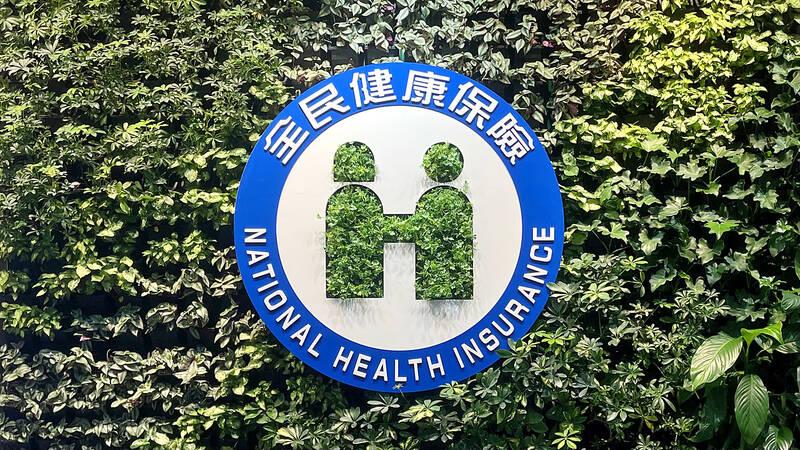Five major medical and nursing associations issued a joint statement today saying that funding issues with the National Health Insurance (NHI) system remain unresolved.
Although the NHI budget is slated to increase to NT$928.6 billion (USD$28.19 billion), a 5.5-percent increase compared to last year, this might still be short as the premium rate is not set to change and point values have yet to be adjusted, the statement said.
The five groups are the Taiwan Hospital Association, Taiwan Medical Association, Taiwan Union of Nurses Association, the Nongovernmental Hospitals and Clinics Association and Taiwan College of Healthcare Executive.

Photo: Lin Chih-yi, Taipei Times
The increased budget fails to account for unspent points, the statement said, which potentially fails to underestimate growth rates.
Compared to other advanced countries, Taiwan spends the least on healthcare as a percentage of GDP, the statement said, adding that this underinvestment has left the healthcare system unable to meet basic needs.
Other rare disease treatments have also relied on hospital budgets, leading to stagnant salaries for workers and reducing institutions’ capacity to care for the sick, the statement read.
For example, since 2003, NT$622 million has been budgeted for hepatitis B and C treatment programs but actual spending by hospitals is at NT$2.8 billion over that period, the statement said.
Some medical institutions have even had to close, the statement added.
Point values have been diluted, leading to increased burden on medical institutions, the statement said.
Point value reform should seek to make up for prior shortcomings, rather than just increasing this year’s budget, the statement said.
The groups called on the government to address point value deficits, adjust the payment formula to reflect rising costs of advancing medical treatments, allocate dedicated budgets for specific public health projects to avoid impacting general health services, and improve salaries for workers, the statement said.
The groups also thanked the government and Ministry of Health and Welfare for supporting the budget increase, adding that this year’s budget reflects the importance of the medical system, the statement said.

The manufacture of the remaining 28 M1A2T Abrams tanks Taiwan purchased from the US has recently been completed, and they are expected to be delivered within the next one to two months, a source said yesterday. The Ministry of National Defense is arranging cargo ships to transport the tanks to Taiwan as soon as possible, said the source, who is familiar with the matter. The estimated arrival time ranges from late this month to early next month, the source said. The 28 Abrams tanks make up the third and final batch of a total of 108 tanks, valued at about NT$40.5 billion

Two Taiwanese prosecutors were questioned by Chinese security personnel at their hotel during a trip to China’s Henan Province this month, the Mainland Affairs Council (MAC) said yesterday. The officers had personal information on the prosecutors, including “when they were assigned to their posts, their work locations and job titles,” MAC Deputy Minister and spokesman Liang Wen-chieh (梁文傑) said. On top of asking about their agencies and positions, the officers also questioned the prosecutors about the Cross-Strait Joint Crime-Fighting and Judicial Mutual Assistance Agreement, a pact that serves as the framework for Taiwan-China cooperation on combating crime and providing judicial assistance, Liang

A group from the Taiwanese Designers in Australia association yesterday represented Taiwan at the Midsumma Pride March in Melbourne. The march, held in the St. Kilda suburb, is the city’s largest LGBTQIA+ parade and the flagship event of the annual Midsumma Festival. It attracted more than 45,000 spectators who supported the 400 groups and 10,000 marchers that participated this year, the association said. Taiwanese Designers said they organized a team to march for Taiwan this year, joining politicians, government agencies, professionals and community organizations in showing support for LGBTQIA+ people and diverse communities. As the first country in Asia to legalize same-sex

MOTIVES QUESTIONED The PLA considers Xi’s policies toward Taiwan to be driven by personal considerations rather than military assessment, the Epoch Times reports Chinese President Xi Jinping’s (習近平) latest purge of the Chinese People’s Liberation Army (PLA) leadership might have been prompted by the military’s opposition to plans of invading Taiwan, the Epoch Times said. The Chinese military opposes waging war against Taiwan by a large consensus, putting it at odds with Xi’s vision, the Falun Gong-affiliated daily said in a report on Thursday, citing anonymous sources with insight into the PLA’s inner workings. The opposition is not the opinion of a few generals, but a widely shared view among the PLA cadre, the Epoch Times cited them as saying. “Chinese forces know full well that